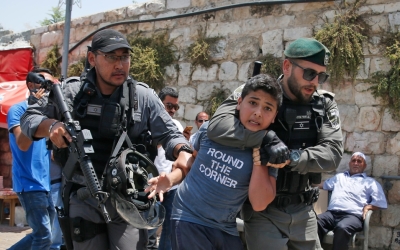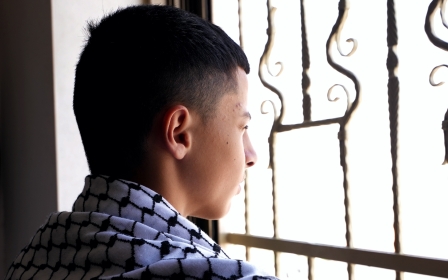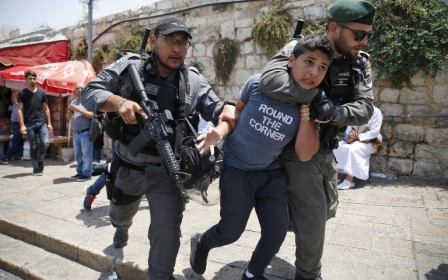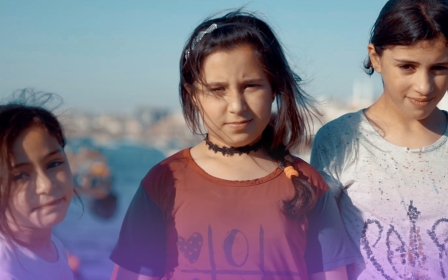Israeli court denies parole to Palestinian teenage prisoner under 'terrorism law'

Israeli prison authorities have decided to classify the case against 19-year-old Palestinian prisoner Ahmed Manasara under "terrorism law," refusing calls for parole that would release him from jail.
Khaled al-Zabarqa, a Palestinian lawyer in Manasra's legal defence team, said on Wednesday that the Israeli decision is legally and constitutionally "wrong".
"It is a clear violation of the legal and constitutional foundations of the local and international legal system, especially the legal system related to children and minors," Zabarqa said.
Manasara is serving a 12-year prison sentence for allegedly stabbing and wounding two Israelis near a settlement in occupied East Jerusalem in 2015.
The court's decision would deny his legal defence team the possibility of transferring his case file to the early release committee.
However, his lawyer still has the opportunity to appeal.
Manasra was arrested when he was 13 years old and was subjected to severe harassment during his interrogation by Israeli officers, a video of which was leaked at the time sparking outrage from human rights groups.
Israel was widely criticised for delaying Manasra’s sentencing until after his 14th birthday, at which time he was old enough under Israeli law to be given a longer prison sentence.
In 2016, an Israeli court convicted him of carrying out an attack in the illegal settlement of Psgat Zeev in occupied East Jerusalem, with his cousin Hassan Manasra, who was shot by Israeli guards on that day. Ahmed was shot and wounded.
There are currently 4,700 Palestinians held in Israeli prisons, including 32 women and 170 children, according to Palestinian prisoners' rights group Addameer.
Of those, around 640 are held under "administrative detention", a controversial policy that Israel uses to hold detainees without charge or trial for renewable periods of three to six months.
Middle East Eye delivers independent and unrivalled coverage and analysis of the Middle East, North Africa and beyond. To learn more about republishing this content and the associated fees, please fill out this form. More about MEE can be found here.





